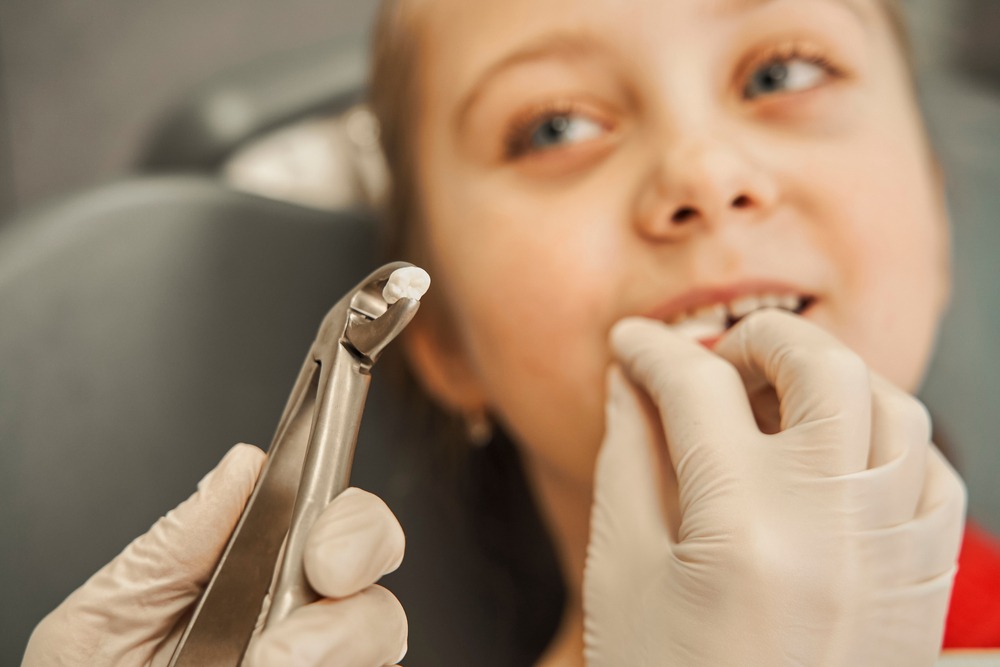Tooth extraction, or the removal of a tooth from its socket in the jawbone, is a dental procedure that may be necessary for various reasons. While the thought of tooth extraction can be intimidating, modern dentistry has made this procedure considerably more comfortable and less painful. In this guide, we’ll explore the reasons for tooth extraction, what to expect during the procedure, and post-extraction care to ensure a smooth recovery.

Reasons for Tooth Extraction
- Severe Tooth Decay: When tooth decay reaches an advanced stage and cannot be effectively treated with restorative procedures like fillings or crowns, extraction may be necessary to prevent further damage or infection.
- Periodontal Disease: Advanced periodontal (gum) disease can cause teeth to become loose and unstable. In such cases, extraction may be recommended to preserve the health of surrounding teeth and gums.
- Impacted Wisdom Teeth: Wisdom teeth, also known as third molars, often do not have enough space to erupt properly, leading to impaction. Impacted wisdom teeth can cause pain, infection, and damage to adjacent teeth, necessitating removal.
- Orthodontic Treatment: In some cases, tooth extraction is part of an orthodontic treatment plan to create more space in the mouth, allowing for better alignment of the remaining teeth.
- Fractured or Cracked Teeth: Teeth that are severely cracked, fractured, or broken may be beyond repair and require extraction to prevent infection or discomfort.
- Preparation for Dentures: In cases where patients are getting complete or partial dentures, some teeth may need to be extracted to accommodate the new appliance.

What to Expect During Tooth Extraction
- Evaluation: Before the extraction, Dr Vesna will thoroughly evaluate your dental and medical history, conduct X-rays, and discuss your concerns. This helps in planning the procedure and ensuring your safety and comfort.
- Local Anesthesia: Tooth extraction is typically performed under local anesthesia, which numbs the area surrounding the tooth to be removed. This ensures you won’t feel any pain during the procedure, only slight pressure.
- Surgical Extractions: In some cases, a surgical extraction may be necessary. This involves making a small incision in the gum to access the tooth. Surgical extractions are often used for impacted wisdom teeth or teeth with complex roots.
- The Extraction: Once the area is numbed and any necessary incisions are made, the dentist will gently rock the tooth back and forth to loosen it within the socket. When it’s sufficiently loose, the tooth is carefully removed.
- Closing the Wound: After the tooth is extracted, the dentist may place a few stitches to close the surgical site if necessary. This aids in proper healing.
- Post-Extraction Care: The dentist will provide you with post-operative instructions to follow, including guidelines for pain management, eating, and oral hygiene.

Post-Extraction Care and Recovery
Recovery from a tooth extraction is typically a straightforward process. Here are some key tips to ensure a smooth and painless recovery:
- Pain Management: Your dentist may recommend over-the-counter or prescription pain medication to manage any discomfort. Follow the prescribed dosage and don’t hesitate to reach out if you have severe or prolonged pain.
- Swelling: Some swelling is normal after an extraction. Applying an ice pack to the outside of your cheek for 20 minutes on and 20 minutes off during the first 24 hours can help reduce swelling.
- Diet: Stick to a soft diet for the first few days after extraction. Avoid hot, spicy, and crunchy foods that could irritate the surgical site. Soups, yogurt, and smoothies are good choices.
- Oral Hygiene: While it’s important to keep your mouth clean, be gentle when brushing and flossing around the extraction site. Avoid the extraction area for the first few days.
- Avoid Smoking and Alcohol: Smoking and alcohol can slow down the healing process and increase the risk of complications. It’s best to avoid them during your recovery.
- Follow-Up: Attend any follow-up appointments with your dentist as scheduled. They will assess your healing progress and remove any stitches if necessary.